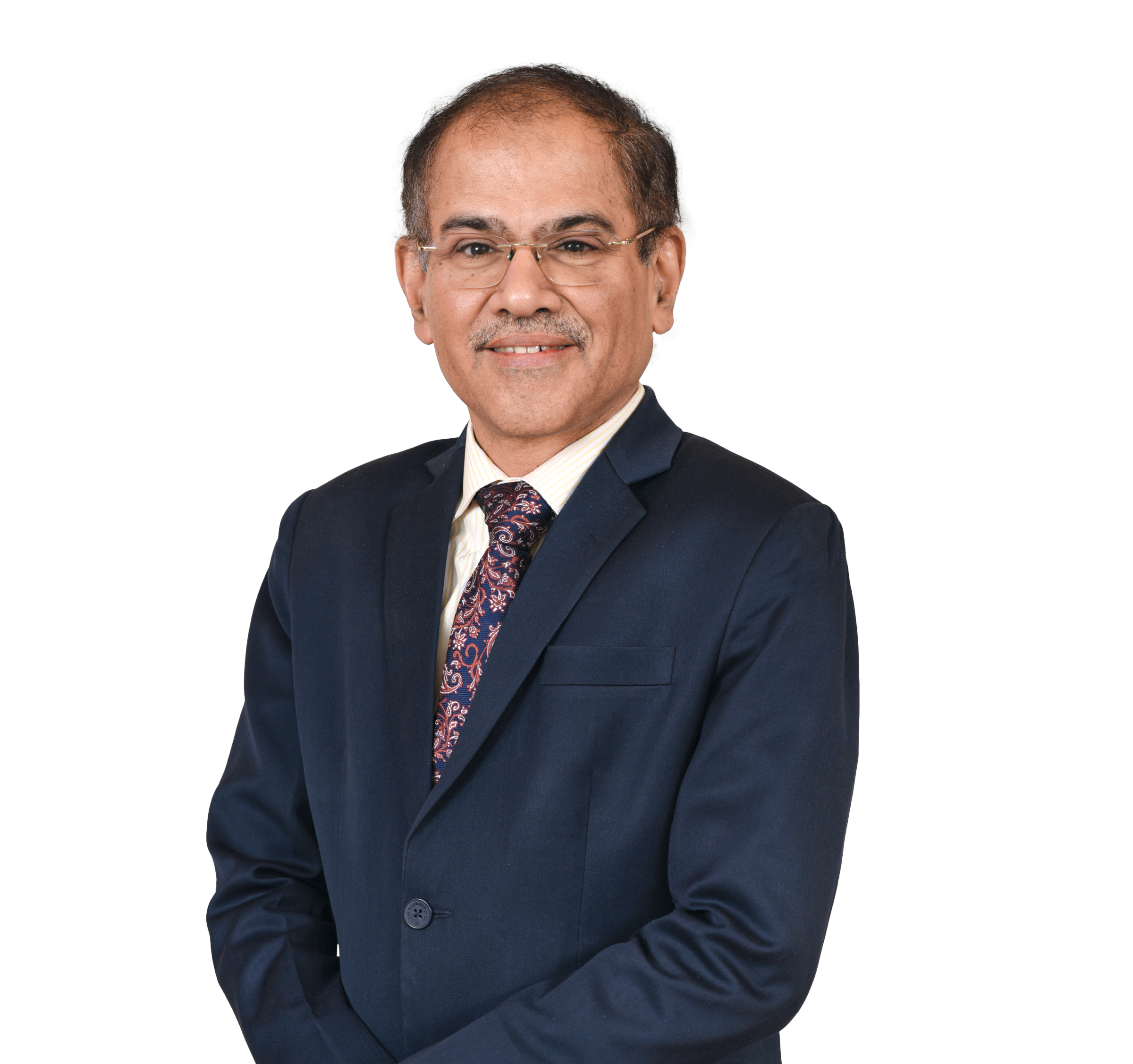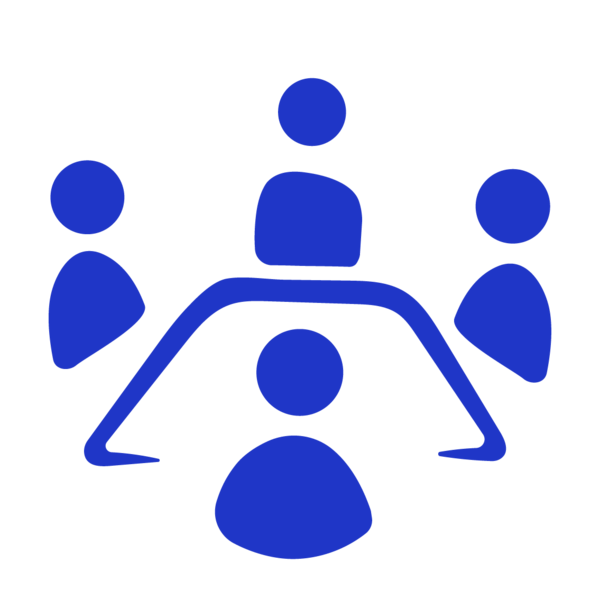
Stakeholders Interest : Businesses should respect the interests of and be responsive to all its stakeholders

Message from Our Leadership
"At Hindustan Unilever, we take pride in our business being a force for larger good. We believe in creating long-term value by caring for all our stakeholders comprising of our consumers, customers, employees, shareholders, business partners, and above all, the planet and society."
Madhusudhan Rao
Executive Director, Beauty & Personal Care
Our Stakeholders

Consumers
We aim to provide superior-quality products and purposeful brands that take action on the issues that matter to people and planet.

Customers
We partner with traditional trade distributors, retailers and digital commerce marketplaces to grow our business and theirs.

Suppliers &
business partners
We partner with suppliers to help innovate our products and support mutual and sustainable growth.

Our people
We aim to reward people fairly for the work they do while helping them find their purpose so they become the best they can be with the Company.

Planet & society
We aim to improve the health of the planet while contributing to a fairer and more socially inclusive world.

Shareholders
We aim to deliver consistent, competitive, profitable, and responsible growth.
Essential Indicators
1. Describe the processes for identifying key stakeholder groups of the entity.
We have established a robust process for identifying stakeholders and engaging with them to strengthen the partnership. We have undertaken a 360-degree review of our business value chain to identify our key stakeholder groups and mapped stakeholder engagement mechanism. There are six key stakeholder groups critical to our success: Consumers, Customers, Suppliers and Business Partners, Our People, Planet & Society and Shareholders.
2. List stakeholder groups identified as key for your entity and the frequency of engagement with each-stakeholder group.
| S. No. | Stakeholder Group | Whether identified as Vulnerable & Marginalized Group (Yes/No)* | Channels of communication (Email, SMS, Newspaper, Pamphlets, Advertisement, Community Meetings, Notice Board, Website), Other | Frequency of engagement (Annually/ Half yearly/ Quarterly / others - please specify) | Purpose and scope of engagement including key topics and concerns raised during such engagement |
|---|---|---|---|---|---|
| 1 | Consumers | No | Phone, email, social media channel, brands website, consumer surveys and Digital Voice of Consumers | Ongoing | Product quality and safety, information on products, fair and competitive pricing, complaints, queries, feedback, praise, and suggestions |
| 2 | Customers | No | Phone, email, website, sales-force engagements, eB2B app 'Shikhar' and customer conferences | Ongoing | Product quality and safety, information on products, timely delivery, service level, training on technology and process capabilities |
| 3 | Suppliers and Business Partners | No | Phone, email, Convercent helpline, supplier meeting, audit, survey and evaluation | Ongoing | New business opportunities, supplier transparency, adherence to our RPP and Business Partner Code, sustainability and ESG, value chain efficiency, payments, and purchase prices |
| 4 | Our people | No | Surveys, townhalls, workshops, training, induction programmes, grievance handling process, and performance appraisal | Ongoing | Career development, diversity and equal opportunity, health and safety, skill upgradation, learning and development, organisational culture/ workplace, and grievances. |
| 5 | Planet and Society | No | Field visits, CSR projects and engagements, brand activations and campaign, community needs assessment, and website | Ongoing | Climate actions; environmental protection and regeneration; a waste-free world; positive nutrition; health and well-being; equity, diversity, and inclusion; the future of work; and water stewardship |
| 6 | Shareholders | No | Phone, email, annual report, results announcements, microsite on performance highlights, media releases, Capital Markets Day, Annual General Meeting (AGM) and website | Ongoing, Quarterly | AGMs allow shareholders to communicate directly with the Board of Directors and the Management Committee. Capital Markets Day and quarterly Earnings calls allow investors to engage with the management of company on business strategy and performance. We have dedicated email IDs through which our Investor Service Department engages with shareholders to resolve their queries and grievances. |
*While we have marked 'no' above as these stakeholders are not vulnerable and marginalised in entirety, we are consciously involved in uplifting the vulnerable and marginalised segments for these stakeholders. For e.g. we work towards giving equal opportunities to 'Persons with disabilities', procurement from MSME / diverse suppliers, etc.
Leadership Indicators
1. Provide the processes for consultation between stakeholders and the Board on economic, environmental, and social topics or if consultation is delegated, how is feedback from such consultations provided to the Board.
We strive to grow our
business, while protecting the planet and doing good for the community. We believe
that to generate superior long-term value, we need to care for all our stakeholders:
consumers, customers, employees, shareholders, business partners, and above all, the
planet and society. We call it the multi-stakeholder model of sustainable growth.
The CoBP and Code Policies guide how we interact with our key stakeholders. All
engagements are conducted transparently, with honesty, integrity, and
openness.
Our engagement with our broader stakeholder community is undertaken
by respective functions in consultation with the leadership team and overseen by the
ESG Committee. Feedback from different stakeholder groups on environmental, social
or economic topics is shared with the ESG Committee of the Board. We also have a CSR
Committee to review, monitor, and provide strategic direction to our CSR practices
and social initiatives.
2. Whether stakeholder consultation is used to support the identification and management of environmental, and social topics (Yes/No). If so, provide details of instances as to how the inputs received from stakeholders on these topics were incorporated into policies and activities of the entity.
Stakeholder consultation is
of utmost importance to us, as we live in an uncertain and constantly changing
world. In order to create long-term value, we take steps to understand each
stakeholder group's needs and priorities through several mediums, including direct
engagement or via delegated committees and forums.
We conduct a
sustainability materiality assessment to identify and prioritise sustainability
issues across our value chain so that we can focus on the key issues affecting our
stakeholders. A sustainability issue is material to us, if it is considered a
principal risk or an element of a principal risk that could impact our business or
performance or if our key stakeholders deem it important. In addition, we use
stakeholder insights to gauge the relative importance of each issue.
3. Provide details of instances of engagement with, and actions taken to, address the concerns of vulnerable/ marginalized stakeholder groups.
We engage with
vulnerable/marginalised stakeholder groups through the CSR outreach programmes. The
programmes are not just limited to philanthropy, but also encompass holistic
community development, institution-building, and sustainability-related initiatives,
while focusing on vulnerable and marginalised groups. The CSR Policy aims to provide
a dedicated approach to community development in water conservation, health and
hygiene, skill development, providing livelihood opportunities, social advancement,
gender equality, empowerment of women, environmental sustainability, and rural
development.
Further, as a part of 'HUL Compass ESG Goals', we plan to spend
₹2,000 crores annually with diverse suppliers by 2025, focusing on (but not limited
to) women, differently-abled people, and other marginalised sections of
society.
Some of the key actions to address the concerns of
vulnerable/marginalised groups through various initiatives are listed
below:
Project Shakti: An initiative to financially empower
and provide livelihood opportunities to women in rural India, launched by HUL in
2001. Project Shakti has positively impacted the livelihoods, confidence, and
self-esteem of women with enhanced skills and entrepreneurial mindsets. We have over
1,90,000 Shakti entrepreneurs spread across 18 States.
Water
conservation programme: Hindustan Unilever Foundation (HUF) is a
not-for-profit company set up in 2010 to support and amplify scalable solutions to
address India's water challenges, specifically in rural communities that intersect
with agriculture. HUF along with its partners has delivered a cumulative and
collective water potential of over 2.6 trillion litres* since its inception over the
last decade through improved water supply and demand management, over 1.7 million
tonnes of additional agricultural and biomass production, and over 110 million
person-days of employment. To underscore the importance of the water potential
created by HUF; 2.6 trillion litres of water is more than the quantity required to
meet the drinking water needs of India's population for nearly two
years.
Asha Daan: Asha Daan is a home in Mumbai for
abandoned and differently abled children, HIV positive people and destitute. Since
the inception of Asha Daan in 1976, HUL has been looking after the maintenance and
upkeep of the premises. Managed by the Missionaries of Charity (founded by Mother
Teresa), Asha Daan provides shelter to over 350 - 400 inmates. The home is located
in 50,000-square feet plot owned by HUL and under our CSR program, we have commenced
work to set up proper drainage and ventilation systems, create additional leisure
space for inmates to walk, and develop a play area for
children.
Prabhat: Prabhat is our sustainable community
development initiative that aims to create sustainable and inclusive communities. It
builds on local community needs at a grassroot level, in line with India's
development agenda and the UN Sustainable Development Goals (SDGs). The initiative
has positively benefitted nearly 9 million people in the last nine
years.
Ankur: Ankur was set up in 1993 as a centre for
special education for differently abled children at Doom Dooma in Assam. Ankur has
provided free special educational, vocational, and rehabilitative training to over
350 children with physical and cognitive impairments from underprivileged
backgrounds.
Sanjeevani: A free mobile medical service camp
called 'Sanjeevani' has been set up to cater to the local community near our
manufacturing location in Doom Dooma in Assam.
Suvidha: The
Community Hygiene Centre - 'Suvidha' is a first- of-its-kind urban water, hygiene
and sanitation community centre, that was first set up at Ghatkopar, Mumbai. The
biggest Suvidha centre is in Dharavi, Mumbai and is one of the largest community
toilets in India. In 2023, we built five new Suvidha centres and as on March 2023,
we have 12 Suvidha centres in Mumbai along with our partners, giving access to clean
water, sanitation and laundry facilities to over 3 lakhs
people.
'Samavesh' and 'Ahilya': 'Samavesh' is our project
to improve women participation in our factory shop floors and with our 'Ahilya'
initiative, we are empowering women to become sales professionals. We have over 850
women as shopfloor employees across our manufacturing locations and have onboarded
over 1000 women in sales.
Inclusion of person with disabilities
(PwDs): We are committed to including persons with disabilities in our
employment ecosystem and workforce. Our ambition is to achieve 5% of our workforce
to be made up of people with disabilities by 2025.
*Assured by external independent firm